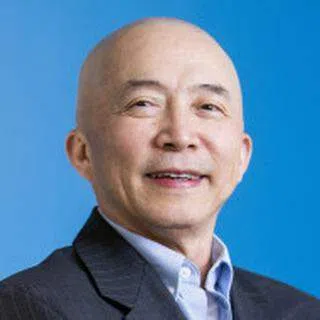China-US competition: Managing bottom lines for a win-win situation
Academic Fei-Ling Wang says that the competition between China and the US could become a non-zero-sum game that is mutually beneficial to the two sides and even to the world. This would depend on how the countries uphold their worldview, outlook on life and values and are able to "live and let live".
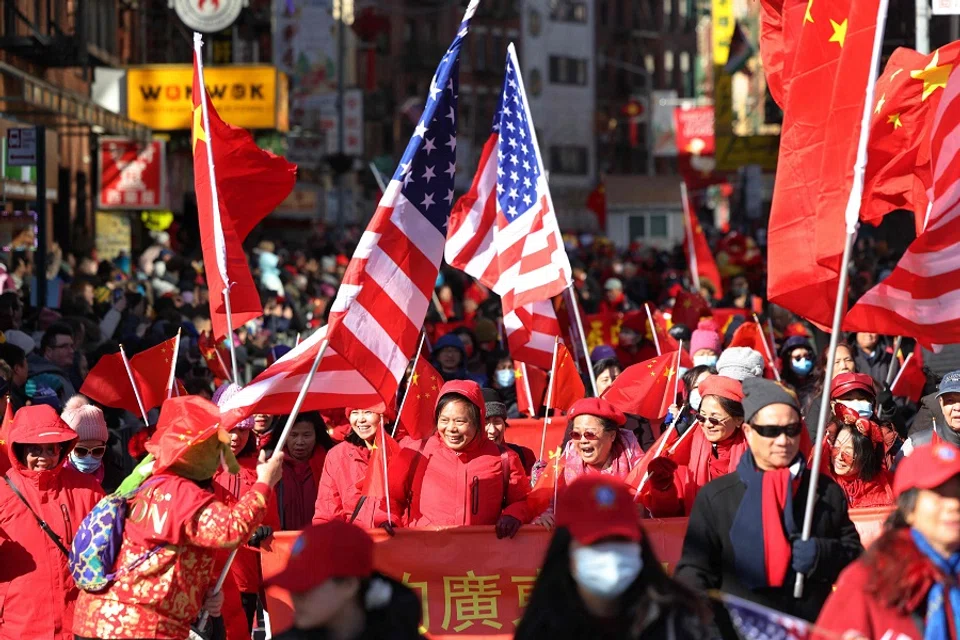
Several of my recent writings in Lianhe Zaobao about China-US relations have pointed towards one viewpoint: China-US competition, which has a global impact, has the elements of both a zero-sum and non-zero-sum game, and can become a mutually beneficial situation that benefits the world in a non-zero-sum-game. The key lies in the perception and management of the bottom line or redline of the two sides.
Emphasis on worldview, outlook on life and values
Diplomacy is often an extension of domestic politics. As I mentioned, the diplomatic bottom line for the US is safeguarding the US-led, post-Second-World-War Westphalian system of international relations.
This is in fact the safeguarding of the foundation of US independence and worldview - the so-called American Creed, which is a political system and a set of values and norms founded upon post-Enlightenment Western civilisation. It includes safeguarding civil and human rights, private property rights, personal freedom, and national independence and sovereignty, under a decentralised democracy as well as a rule of law.
For the sake of these seemingly abstract and empty concepts of worldview, outlook on life and values, the US has been extremely persistent, often sparing no effort - or even bloodshed. An old example would be how from 1952 to 1953, the US insisted on giving prisoners of war the freedom to choose their fate after the war. This led to another 15 months of fighting in the Korean War, sacrificing more than an additional 10,000 US soldiers in the process.
A more recent example would be how after the 9/11 attacks in 2001, although the origin of the anti-US terrorists was evident, the US insisted on treating everyone equally at its various public security checkpoints, regardless of ethnicity or nationality, despite the high cost and constant barrage of complaints.
The US is extremely diverse and highly values lives; it was originally formed by immigrants from various countries. As long as it felt that its bottom line was safe, the US would not likely go all out and fight to the death on issues such as international competition, the rise in national power of other countries, or even the change in global leadership.
... it is "self-centred" in thinking that only by doing so can it safeguard its own beliefs and way of life.
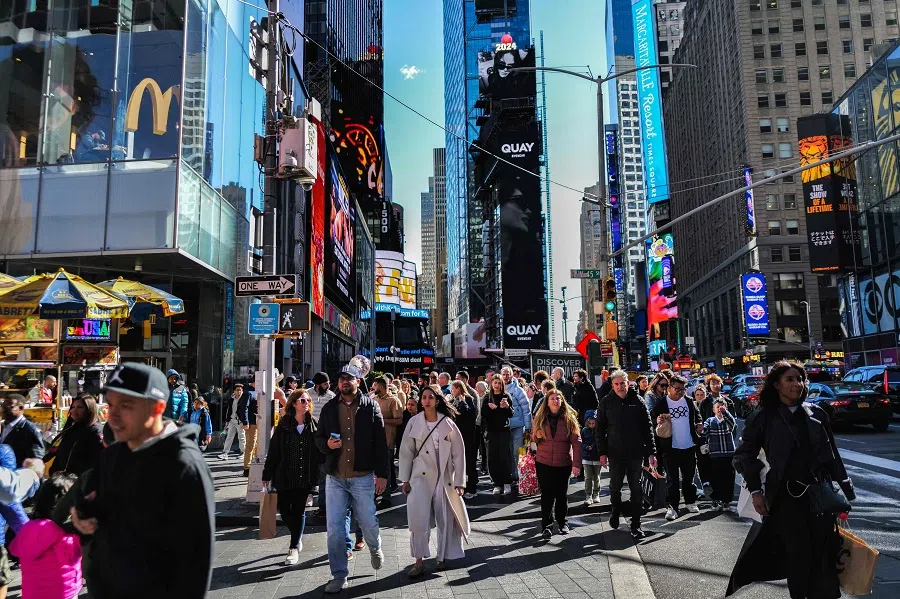
Over the past centuries, the world has seen several big nations rise and fight for hegemony; often accompanied by a life-and-death clash of military might. The transfer of global leadership from the UK to the US is perhaps the only peaceful exchange of power. This is largely due to the homogeneity and compatibility of the American Creed and British norms and values.
In the past 80 years or so, Washington often played the self-affirming role of the world's policeman. Rather than saying that the US sought to be a dictator ruling over all countries, instead it is more about how it is "self-centred" in thinking that only by doing so can it safeguard its own beliefs and way of life.
Back then, even as the US bore witness to world leader the UK - whose worldview, outlook on life and values were close to its own - being on the brink of defeat, and understood that it could no longer simply go along with the ride and hide behind the UK and France; and even as Germany, Japan and the Soviet Union - countries that differed greatly from the US on their worldview, outlook on life and values - were teaming up and carving up areas in Eurasia and even the world, it still took Japan's surprise attack on Pearl Harbor and Germany's declaration of war on the US for Washington to officially take part in the Second World War and take up the mantle of leader of the West and even the world.
China's worldview, outlook on life and values formed by its domestic politics are not only non-homogeneous to that of the US-led West, they are so vastly different to the point of being at odds with each other.
Can China's political system coexist with the US-led global order?
Diplomacy for the rising China naturally also reflects the interests of its domestic politics. My earlier article titled "Is China-US Competition a Zero-Sum Game?" highlighted that Beijing made constant declarations of its diplomatic redline to prevent and squash any disruption by foreign countries on "China's internal political order".
This is understandable when considering a country's foreign policy. Unfortunately, China's worldview, outlook on life and values formed by its domestic politics are not only non-homogeneous to that of the US-led West, they are so vastly different to the point of being at odds with each other.
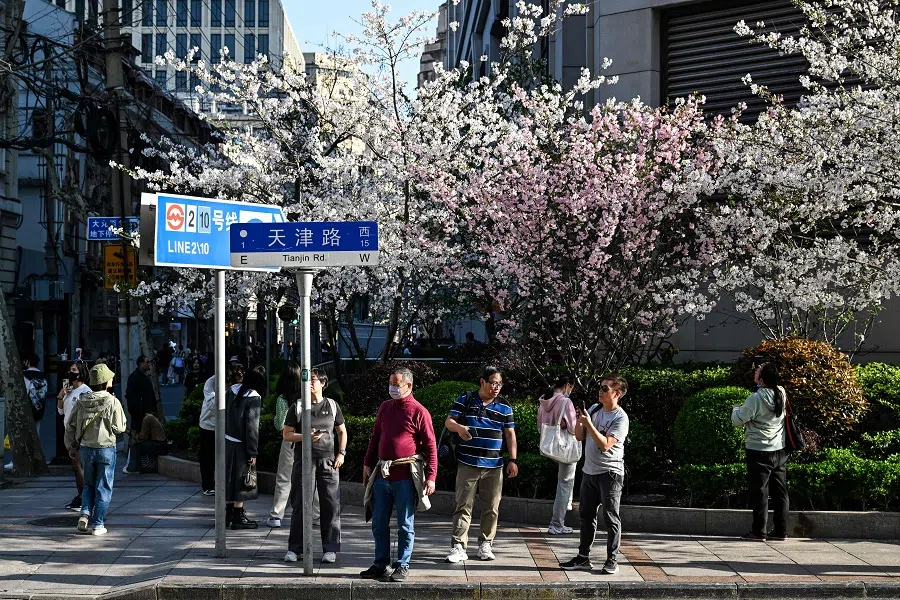
Hence, China's diplomatic redline or prime interests are incompatible with the US-led global order, or in other words, the US's bottomline. China, which continues to rise and has increasing demands, and the US, which has "no choice" but to continue to be the head honcho, naturally become competitors in a grand zero-sum or near-zero-sum game.
Can China's political system coexist with the US-led global order? Can two countries with different domestic politics peacefully coexist and "live and let live"?
In theory the answer is, of course, yes. This is in fact the biggest strength and uniqueness about the Westphalian system of international relations. Each country is sovereign, independent and equal, and can freely choose their own values, norms and ways in which to compare and compete.
On the whole, although China's worldview, outlook on life and values are quite different from the West's, the situation is not as terrible when compared with many other countries.
The least problematic part of this global order lies in the fact that the overall modernisation of human civilisation can be optimised through each country's independent trial and error, innovation, learning and imitation, as well as through the international exchange of population, resources, knowledge and technology.
On the whole, although China's worldview, outlook on life and values are quite different from the West's, the situation is not as terrible when compared with many other countries.
How Beijing leverages its political interest to define its foreign policy is at the core an internal matter for the Chinese; the enormous fruit of hard work and labour by the Chinese people as well as the lessons they have gleaned from a wealth of accumulated experience is of great contribution to the global economy and human knowledge.

Many (perhaps the majority) Americans and Westerners are indifferent about a "better and more hardworking" China eventually replacing the US as world leader; after all, one can always immigrate and seek greener pastures and a better life. In the Chinese world, those that raise the narratives of the US being "anti-China" because of racism or "not wanting to see other countries rise" are in fact mostly perceiving others by their own yardsticks.
Key to peaceful coexistence
Certainly, under a system of international relations, for countries with differences in their worldview, outlook on life and values to peacefully coexist, there must be a very crucial limiting factor: dissimilar and non-compatible values and norms as well as world view must not be forcibly imposed on other countries.
In particular, force must not be used to change any country's independence or the global order of decentralised power. There should also not be any overwhelming or even complete takeover of a country by means of economic might, for the purpose of establishing a global empire under a unified political will.
Indeed, if China, with its worldview, outlook on life and values rather different from the US's, is incapable or sincerely not inclined to (or is unable or has no intention to) challenge the current so-called mainstream global values and norms and world view that originated from the Western world - especially with regard to the system of international relations and the world order itself (in other words, the US's diplomatic redline) - it is entirely possible for it to continue peacefully coexisting with the US. This is something that China has done for a long time in the past.
Both countries can continue all forms of mutually beneficial economic and cultural exchanges, and jointly tackle international problems such as climate change, diseases and drug control, joining hands to improve global welfare.
... once an authoritarian regime feels that it has enough power, it seems to be inclined towards pursuing a global empire united under one, almost as if it is in their DNA to do so.
However, academics have long discovered that non-democratic political systems seemingly cannot remain satisfied for long under the system of international relations and a "live and let live" global order of decentralised power.
On one hand, once an authoritarian regime feels that it has enough power, it seems to be inclined towards pursuing a global empire united under one, almost as if it is in their DNA to do so. On the other hand, international economic and cultural exchange would inevitably bring about a collision, integration or even replacement of different values and norms.
The existence of the so-called global order of freedom, led by the US and the West after the Second World War and especially after the Cold War, along with its influence - whether intentional or not - would inevitably be resisted and attacked full-force by an authoritarian regime seeking to safeguard its own safety and longevity.
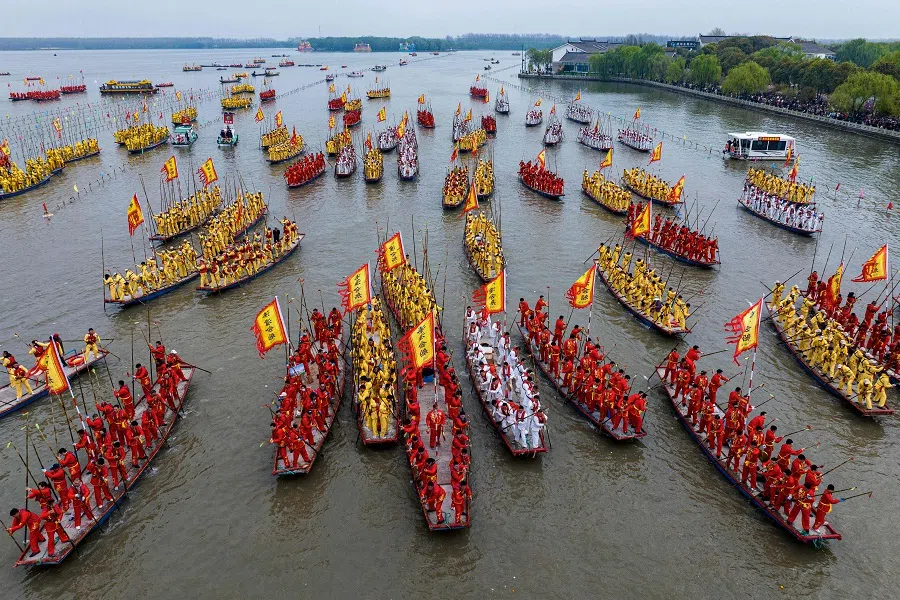
Hence, the key to how China, which is growing increasingly stronger and livelier, would be able to show that it truly has no intention or is incapable of challenging the US and changing the current global order under the system of international relations, would depend on how it manages and transforms the current state of China-US competition, and reduce the elements of a zero-sum game while moving towards a non-zero-sum game.
Mao Zedong had asked a key question: who are our enemies and who are our friends? The time is now for the Chinese people to give the right answer in accordance with the current state of affairs.
Many years ago, I discussed in an article carried by the New York Times that China needs to make domestic reforms and revise its worldview, outlook on life and values in order to keep up with its economic development and social change, and this is the only way it can keep itself open to the rest of the world and experience a peaceful and successful rise. Only then would it be able to give the Chinese people what they truly deserve: a world-class living and status that also enriches the world at the same time.
This article was first published in Lianhe Zaobao as "三观异同是中美竞争管理与转型关键".
